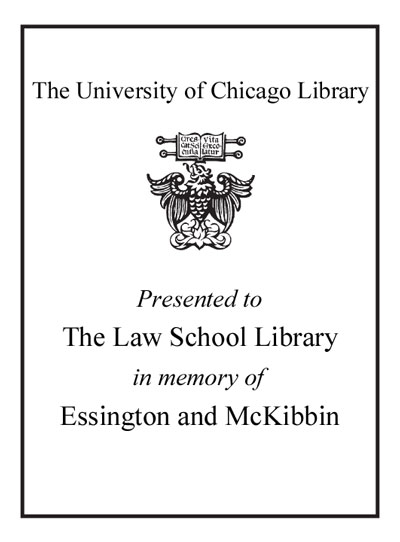Views from the South : the effects of globalization and the WTO on Third World countries /
Saved in:
| Imprint: | [Oakland, Calif.] : Food First Books ; [Sausalito, Calif.] : International Forum on Globalization ; Chicago, IL : Distributed by LPC Group, c2000. |
|---|---|
| Description: | v, 194 p. ; 21 cm. |
| Language: | English |
| Subject: | |
| Format: | Print Book |
| URL for this record: | http://pi.lib.uchicago.edu/1001/cat/bib/4463557 |
Table of Contents:
- Foreword: The Resistance to Southern Perspectives
- How the South is Getting a Raw Deal at the WTO
- The WTO as an Instrument to Govern the South
- Inherent Biases in the WTO System: lack of Transparency and Participation
- Inequities between North and South in the WTO Agreements
- A.. Third World Scholars Critique the Uruguay Round
- B.. The Uruguay Round's Combination of Liberalization and Protection for Corporate Interests
- Difficulties for Developing Countries Generated by the WTO
- Agreements and Third Problems of Implementation
- The Need to Review and Repair the WTO Agreements
- Pressure for New Issues
- A.. Dangers of the Proliferation of "Trade Related Issues"
- B.. The Proposed New Issues and Dangers to the South
- The Dangers of Four New Issues
- A.. Investment
- B.. Competition
- C.. Government Procurement
- D.. Industrial Tariffs
- Other Issues at the Door: Environment and Labor
- A.. Social and Environmental Issues Seeking an Entrance
- B.. Trade and the Environment
- C.. Trade and Labor Standards
- Conclusion
- Building an Iron Cage: Bretton Woods Institutions, the wto, and dthe South
- The 1950s through the 1970s: Emergence of the Southern Agenda
- A.. The Bretton Woods Institutions Focus on the South
- B.. The Southern Challenge in the 1970s
- C.. Right-Wing Reaction and the Demonization of the South
- D.. Targeting the UN System
- The 1980s and Early 1990s: Resubordination of the South
- A.. Structural Adjustment
- B.. Bringing the NICs to Heel
- C.. Dismantling the UN Development System
- The World Trade Organization: Sealing the Defeat of the South
- A.. The WTO and Industrialization in the South
- B.. TRIPs and Agriculture
- C.. The Agreement on Agriculture
- D.. Oligarchic Decision Making
- Strategy for Change
- War Against nature and the People of the South
- Globalization of India's Agriculture
- A.. Shift to Export Crops
- Cotton: Seeds of Suicide
- Shrimp Factories
- Other Export Crops: Costs Exceed Earnings
- B.. Imports: Diversity Destroyed
- C.. Corporate Control of Processing and Packaging
- The Driving Forces behind Globalization of Agriculture
- A.. The Agribusiness Giants
- B.. The WTO Agreement on Agriculture
- Domestic Support
- Market Access
- Export Competition
- Upcoming Review of the AOA
- Need for a New Paradigm
- C.. TRIPs and Biopiracy
- History of Intellectual Property Rights
- Introduction of TRIPs
- Upcoming Review of TRIPs
- Citizens' Movements
- Conclusion
- Implications for Developing Countries and Least Developed Countries
- Dashed Expectations in Developing Countries
- Abuses of the Multilateral Rules-based System by Developed Countries
- Marginalization for Least Developed Countries
- Future Implications for Developing Countries
- New Pressures from Developed Countries
- Millennial Challenges
- A.. Special and Differential Terms
- B.. Implementation of Obligations and Interrogations
- C.. Impact Assessment and Possible Modifications
- D.. Possible Preemptive Positions by Developing Countries
- Further and More Fundamental Aims
- Two cases of Corporate Rule
- 1.. The Case of Chile: Dictatorship and Neoliberalism
- 2.. The Case of Nigeria: Corporate Oil and Tribal Blood
- Afterword

